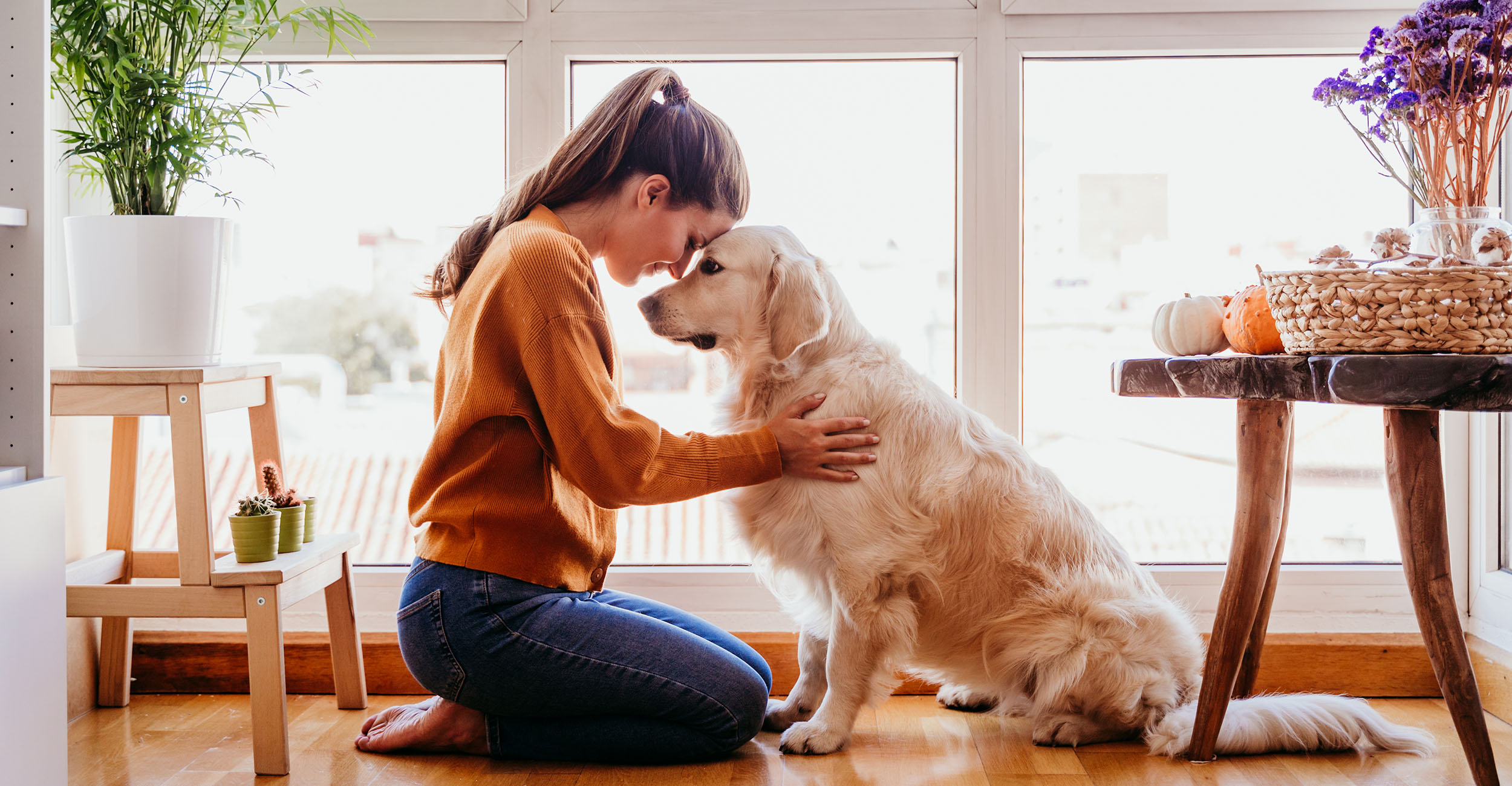
Pets play vital role in mental health
Wednesday, October 6, 2021
Media Contact: Trisha Gedon | Communications Specialist | 405-744-3625 | trisha.gedon@okstate.edu
Pets are cute and cuddly, but they serve a bigger purpose beyond companionship. Research has shown pets are good for both mental and physical health.
What do researchers mean when saying pets are good for health? It means they can improve the mental and physical wellbeing of any pet owners, not just those who are facing health challenges such as cancer, depression or some other illness, said Rachel Morse, Oklahoma State University Extension mental health specialist with the Oklahoma 4-H Youth Development program.
“Research has shown that pet owners had greater self-esteem, were more physically fit, tended to be less lonely, were more conscientious, tended to be less fearful and were more extroverted,” Morse said. “Pets also have been a great source of comfort and company for individuals who have had to transition from a bustling office space to their own quiet living room during the COVID-19 pandemic. Others may have still been able to go into the office for work but have otherwise kept themselves close to home.”
It’s no secret pets help relieve stress their owners are experiencing. Pets are good, non-judgmental listeners, and they’re intuitive. They can sense stress, fear and sadness, as well as happiness and joy. Research has shown therapy animals have proven to decrease stress levels even hours after a short interaction.
“Dogs seem to hone in on body cues and know when to nudge a person or wander over for a scratch behind the ears,” she said. “Pets also can teach us about self-care.”
Morse recalled while working at home during the pandemic, she would get wrapped up in her work all day. Her cat, Miriam, could sense Morse needed a break and would repeatedly paw at her.
“It annoyed me at first, but I realized I hadn’t taken a break all day. It’s so easy to go for days without stepping outside, so I started taking Miriam outside daily so we both could get some fresh air and sunshine to change up our routine,” she said. “Pets and their owners take care of each other. They really can help us through tough times.”
While most studies focus on traditional pets like dogs and cats, any animal can be a therapy pet. Some people find birds to be calming, or perhaps a hedgehog, a bearded dragon or even a tarantula. It’s important to find the pet that works for each individual.
Recognizing the role of pets in mental health, this fall the OSU Center for Pet Therapy opened to help meet the emotional needs of students, faculty and staff. What started as a vision from former First Cowgirl, Ann Hargis, Pete’s Pet Posse began in 2013 with eight dogs as a way to focus on students’ mental health. The program has since grown into a successful pet therapy program with nearly 60 dog/owner teams, said Kendria Cost, director of the OSU Center for Pet Therapy, located at 224 Student Union on the OSU campus.
With students back on campus this semester, Cost said, visits are increasing significantly, and they are serving more students and areas than ever before.
“We see every day the impact these dogs have on not only the students, but also the faculty and staff,” Cost said. “The dogs create smiles, laughter and a welcome distraction from whatever they are dealing with on that particular day. Research has shown animals have the ability to help with depression, loneliness and increase mood.”
The owners/handlers of the dogs in the program serve as ambassadors on behalf of the university, actively listening to students’ concerns and offering resources as appropriate. They make public appearances on campus as well as private visits to organizations, classrooms and special events that can be scheduled when dogs are available.
“We make the students aware of the services that are available to them. The dogs allow students to be more receptive and help open up dialogue,” Cost said.
To date, the program has touched 263,000 lives and made 4,400 special appearances. At OSU, eight classes of therapy teams have been trained. OSU-Tulsa and the OSU Center for Health Sciences have trained three classes of therapy teams. Pete’s Pet Posse has been rated among the most popular programs for student satisfaction and retention in the annual OSU Student Satisfaction Survey.
The Pete’s Pet Posse program is self-funded and supports the Ann Hargis Center for Pet Therapy Endowment Fund, which will help secure the long-term future of the program.
Those interested can learn more about Pete’s Pet Posse by calling 405-744-PUPS (7877) or via email at pettherapy@okstate.edu. Office hours for the center are 10 a.m. to 2 p.m. Monday through Friday. Additional information, including where visits will take place each week can be found on social media outlets, including Facebook, Instagram (@pets4pete) and Twitter (@pets4pete).
